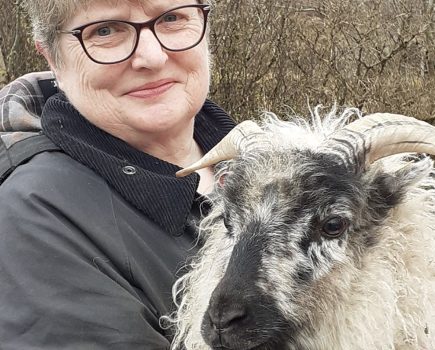JAN 17, 2013: In last August’s issue of CS, a thoroughly researched article by Alan Beat raised the issue of whether small-scale localised organic food production could provide the means of feeding an ever growing world population. Here, another writer, Tim Tyne, gives his point of view
A number of scientists have predicted that modern, large-scale farming systems will ultimately fail us in this respect, and, understandably, alternative agricultural systems, such as smallholdings, are being closely studied. On a world scale, smallholding already makes a massive contribution to food production, but this almost exclusively restricted to the poorest regions. The case studies that accompanied Alan’s article were from Honduras, Ecuador and Malawi. They included examples of whole families who work full-time on plots as small 2 hectares, producing sufficient food not only for themselves, but enough surplus to sell at local markets. This is truly intensive agriculture, in the nicest possible way. So, how does this relate to the smallholding scene in the UK? Not very well, I’m afraid. British smallholders are apt to be quite vociferous when taking the moral high ground over agricultural practices, but, in truth, we lag far behind our third world counterparts, and really have very little to show for our efforts. Here, in Britain, and in other parts of the Western world, a huge change of mindset is required amongst those who call themselves ‘smallholders’, if there’s to be any hope of feeding an increasingly hungry population. In fact, the word ‘smallholder’ will probably need to be re-defined. How many of today’s smallholdings in the UK are given over entirely to food production? Very few, I suspect! Remember, for this to work, there can be no non-productive livestock on the holding (i.e., pets), and neither can there be any non-productive land. Of those smallholdings that are primarily concerned with food production, how many provide a full time occupation for family members? Again, very few. Most are hopelessly inefficient, with smallholders claiming that they cannot ‘afford’ to live full time on the land, making food production an expensive subsidised hobby. Those that do succeed in making a living from small-scale food production are generally producing artisan products for niche markets, at the higher end of the price scale. This is all very well, at present, but when people really begin to get hungry (which, believe me, is going to happen) they’ll want staple products such as potatoes and milk, not fancy treats, and, what’s more, they’ll want them cheap. The modern British smallholder simply isn’t geared up to deliver this. In fact, the whole UK smallholding movement is leaning heavily in the other direction, and steadily becoming the exclusive preserve of affluent downshifters, who are doing it for ‘fun’. Don Faustino of Honduras works full time on his 2 hectare holding, and by ‘full time’ I doubt he means the sort of lazy 39 hour week that many people think constitutes hard work. From my own experience of food production on a small-scale, I should imagine he’s putting in at least 80 hours a week, and often a lot more. He’s got no choice – there are 10 people who depend upon the produce of that tiny plot! Maybe that’s the problem at the heart of smallholding in the UK – we’ve got too much choice. If a crop fails us, we buy what we need instead. If we can’t afford our children’s education, there’s a state alternative. If we haven’t the means to pay for private medical care we take the NHS for granted. We can even choose whether to work or whether to claim benefits! And perhaps worst of all, if we can’t obtain what we want locally then we travel to get it, or have it delivered to us, whether it be food, goods or services. Could any of us enjoy any of these privileges if they had to be paid for out of the profits generated by our current smallholding activities? We are all, figuratively speaking, living beyond our means, and it’s not sustainable. The scientists have claimed, and the impoverished smallholders in developing world have proven, that very small scale intensive agriculture could provide the answer, but have we really got what it takes to feed the world? There are approximately 17,458,000 hectares of agricultural land in the UK, of which 925,800 hectares may be classified as ‘smallholdings’ (farms of less than 20 ha). According to the Honduras model, our smallholdings alone should be capable of supporting 4,629,000 people. If it were possible to roll out the same strategy across a much greater area, it would, in theory, require only 71% of our agricultural land to support the UK’s current population of around 6.5 million. It’s a highly improbable scenario, but one day we might depend upon it… What’s your view? Email editorial.csh@archant.co.uk







